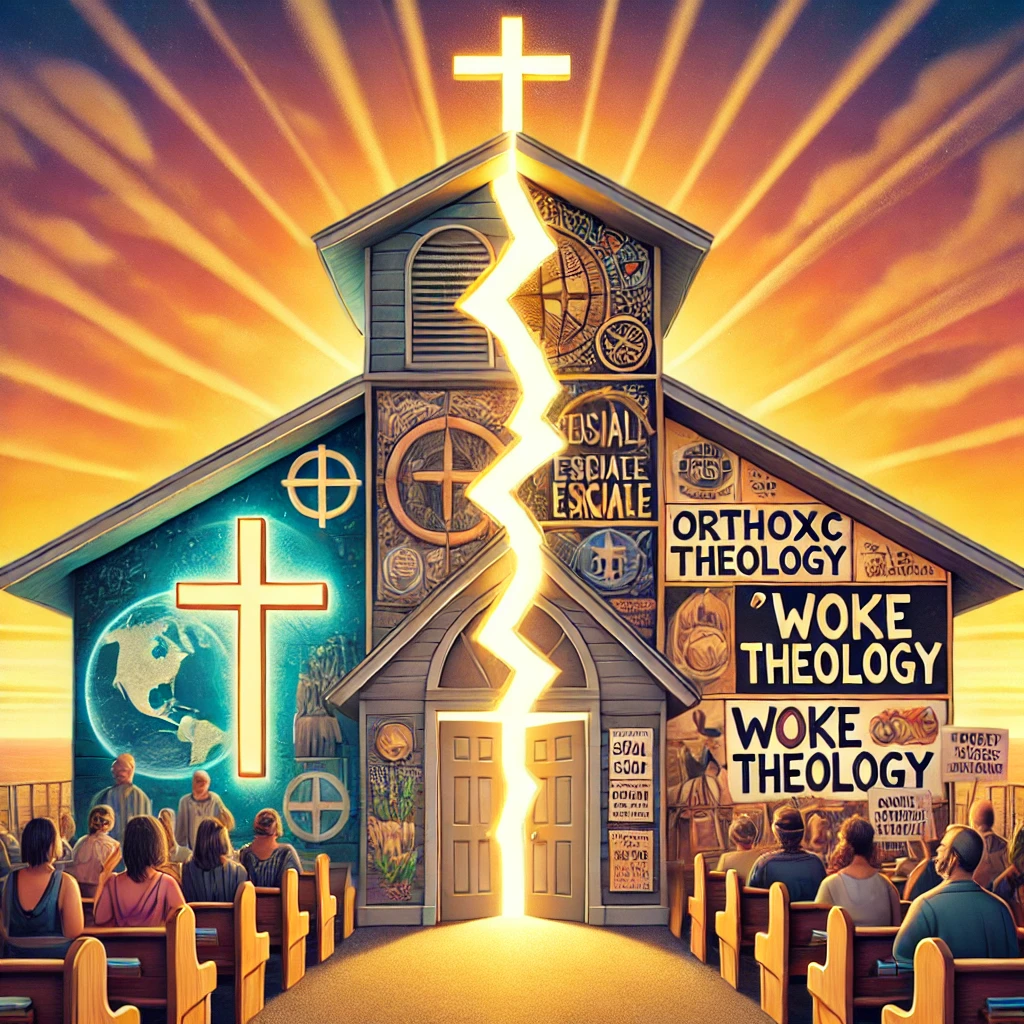
Do you understand what is the Woke theology?
Woke theology has sparked debates within Christian circles. It claims to champion justice, but does it compromise the gospel? Let’s explore what woke theology is, its impact on churches, and how Christians can respond biblically.
What Is Woke Theology?
Woke theology is rooted in being “awake” to social injustices, particularly racial inequities. In a positive sense, being “woke” means being aware of the world’s brokenness and working to address issues of oppression. This resonates with Romans 13:11, which urges believers to wake from slumber and live righteously.
However, woke theology often intertwines social justice with Christian teaching, shifting the focus from sin and salvation to societal reform. For instance, critical race theory (CRT), a key influence on woke theology, frames racial inequities as systemic and rooted in historical injustices. While addressing oppression is noble, woke theology often replaces the gospel message with activism.
The Impact of Woke Theology on Churches
Woke theology is reshaping the priorities of many churches. Here are three key ways it’s influencing Christian communities:
- Social Gospel Over the True Gospel
Woke theology prioritizes social justice over the gospel of salvation. For example, some churches focus on addressing systemic racism rather than preaching repentance and faith in Christ. While advocating for justice is biblical, our ultimate mission is to reconcile people to God (2 Corinthians 5:18-20).
- A New Religion
Woke theology often replaces traditional doctrines with secular ideologies. Climate change, equity initiatives, and reparations become central themes. Scripture is sidelined, and believers are pressured to conform to cultural norms rather than biblical truth.
- Compromising Doctrine
In the name of tolerance, woke theology introduces new moral standards. It embraces pluralism, denies biblical authority, and redefines sin. For instance, it may argue that systemic racism is the root of all evil, overshadowing the biblical teaching that sin originates in the human heart (Mark 7:21-23).
What Does the Bible Say About Justice?
God’s justice is perfect, blending grace, mercy, and accountability. Amos 5:24 declares, “Let justice roll on like a river, righteousness like a never-failing stream!” Biblical justice focuses on aligning with God’s will, addressing sin, and loving our neighbors.
In contrast, woke theology often equates justice with equity—equal outcomes for all—regardless of effort or context. While biblical justice calls believers to care for the oppressed (Isaiah 1:17), it emphasizes spiritual transformation over societal reform.
How Should Christians Respond?
- Return to the Gospel
The gospel is the power of God for salvation (Romans 1:16). Preach Christ crucified, not social ideologies. Encourage others to seek reconciliation with God, which naturally leads to transformed hearts and communities.
- Address Injustice Biblically
Christians should advocate for justice but within biblical boundaries. For example, Micah 6:8 calls us to act justly, love mercy, and walk humbly with God. This means addressing issues like racism or poverty without compromising truth.
- Discern Cultural Trends
Romans 12:2 warns us not to conform to the patterns of this world. Evaluate woke ideologies against Scripture. Does a movement align with God’s word, or does it distort the gospel? Stand firm in biblical convictions.
A Story of Courageous Faith
Consider Pastor John, whose church faced pressure to adopt woke practices. While he empathized with the desire for justice, he chose to focus on the gospel. His sermons emphasized Christ’s power to heal racial divides. His congregation’s outreach initiatives included mentoring programs and partnerships with diverse churches, rooted in biblical principles.
Through this approach, Pastor John’s church became a model for addressing injustice without compromising faith. His story reminds us that Christians can promote change without diluting the gospel.
Take the Woke Theology Quiz
Are you discerning about woke theology? Take this short quiz to test your understanding:
What is the primary mission of the Church?
- a) Preach the gospel
- b) Address social injustices
- c) Promote equity
What does biblical justice prioritize?
- a) Equal outcomes
- b) Reconciliation with God
- c) Redistribution of wealth
How should Christians respond to woke ideologies?
- a) Conform to cultural trends
- b) Confront them with love and truth
- c) Ignore them
(Answers: 1-a, 2-b, 3-b)
Conclusion
Woke theology challenges the Church by blending social justice with Christian teaching. While it highlights real issues, it often compromises biblical truth. As believers, we must stay rooted in the gospel, address injustice biblically, and discern cultural influences.
Remember, the Church’s mission is not to save society but to proclaim Christ’s salvation. By doing so, we can impact the world for God’s glory.
Please subscribe to our YouTube channel at https://www.youtube.com/@PossibilityPluspm for inspiring videos
